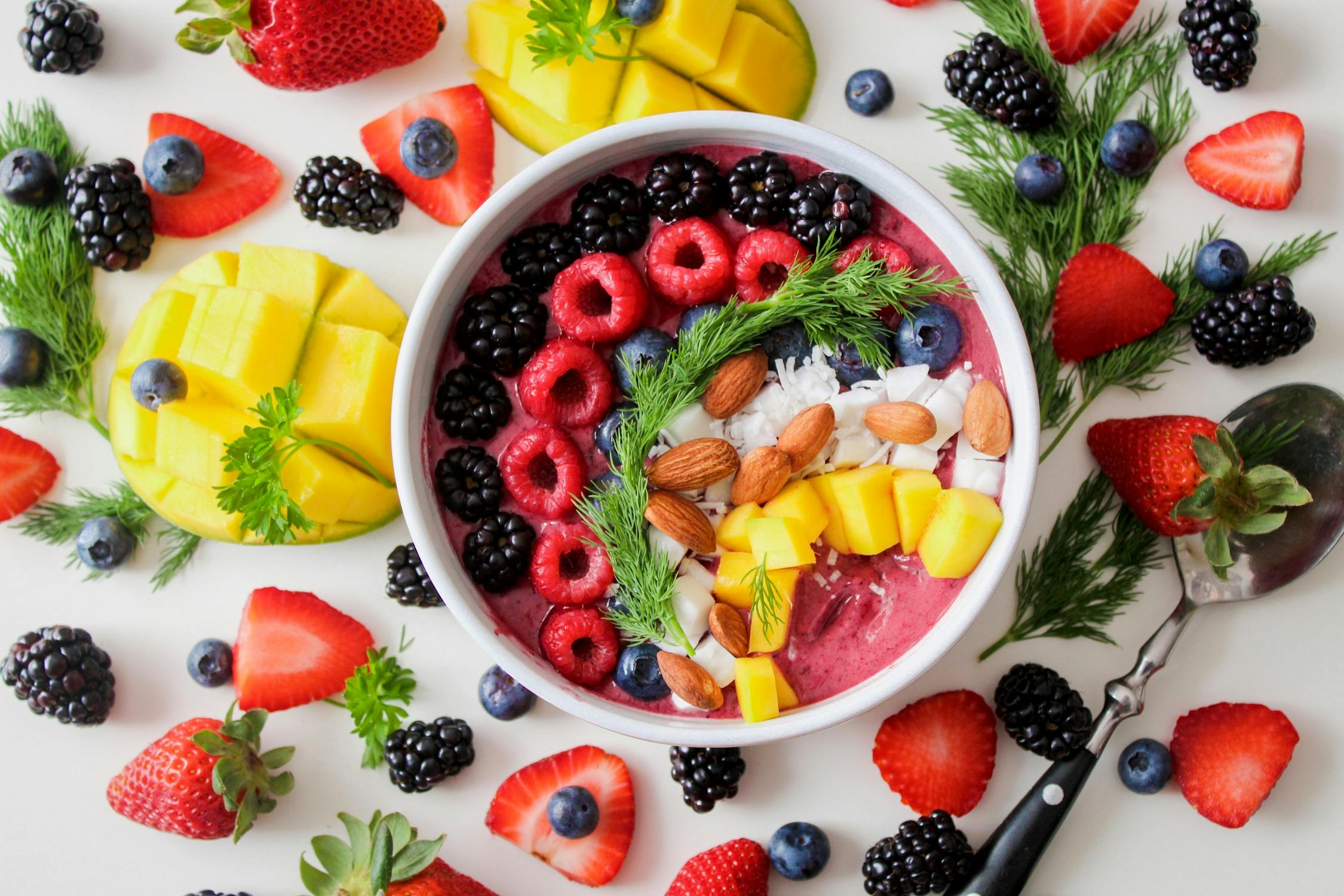October 7, 2024
Food That Will Make You Smarter
So can you eat your way into being smarter? Well I think so, and I'm going to share with you some evidence based information on the foods that you can start eating today (nothing complicated) to actually improve your brain function.

Inflammation
We know that the disease state in the body is the inflammatory state. So inflammation is a good thing when it's fighting a disease. Your body's natural response to a foreign antigen is inflammation because it tries to fight whatever has entered the body.
However, chronic inflammation without any real threat, such as a virus or bacteria, damages cells, tissues, and eventually organs. This chronic inflammatory state is harmful. When it comes to food, we want it to be both anti-inflammatory and antioxidant to combat chronic inflammation.
Healthy Fats
Healthy fats are essential for brain health. More than a third of the brain is made of fat, including the myelin sheath that surrounds neurons, which consists of 80% lipids. A key fatty acid for brain function is DHA, an omega-3 fatty acid found in many foods.
Consuming foods rich in omega-3s supports brain architecture and function.
Fish
Fish, such as salmon, is a well-known source of omega-3 fatty acids. Fish contain these nutrients because they eat seaweed, which originally contains omega-3s.
Eating fish is an easy way to obtain these essential healthy fats.
Avocados
Avocados are rich in monounsaturated fatty acids, which are beneficial for brain health. A 2012 study showed that these fatty acids protect glial cells (astrocytes) that support neurons.
Including avocados in your diet can provide significant benefits for brain function.
Other foods that contain healthy fats
Additional sources of healthy fats include:
- Chia seeds
- Dark chocolate
- Eggs
- Flaxseeds
- Nuts
- Olives
Carbohydrates
There is some debate about carbohydrates and brain health. While certain grain-rich diets may not be beneficial, complex and slow-digesting carbs are essential.
Fiber slows carb metabolism, preventing insulin spikes that contribute to insulin resistance and diabetes. The brain uses about 50% of the body's glucose, making carbohydrates a vital energy source.
Instead of starchy foods like bread and potatoes, focus on fiber-rich carbs such as beans, legumes, and vegetables to sustain brain energy and avoid brain fog.
Matcha
Instead of coffee, matcha is an excellent source of caffeine that provides sustained energy without jitters. Matcha contains L-Theanine, which allows caffeine to be metabolized slowly, preventing sudden spikes and crashes.
The caffeine content in matcha is lower than coffee, making it a great alternative for long study sessions.
Vitamin E
Vitamin E is a powerful antioxidant that benefits brain health. Foods rich in vitamin E include:
- Wheat germ oil
- Sunflower, safflower, and soybean oil
- Sunflower seeds
- Almonds
- Peanuts and peanut butter
- Leafy greens like beet greens, collard greens, and spinach
- Pumpkin
- Red bell pepper
- Asparagus
- Mango
- Avocado
Seeds
Seeds such as sunflower and pumpkin seeds contain tryptophan, an essential amino acid necessary for serotonin production. Serotonin is crucial for mood regulation and brain function.
About 80% of serotonin is made in the gut, showing the importance of gut health. Eating seeds and nuts supports brain neurotransmitter production and function.
Herbs and Spices
Certain herbs and spices provide cognitive benefits and may even help prevent neurodegenerative diseases.
Sage
Sage has been shown to improve cognitive function and may help treat Alzheimer's disease. A 2017 study suggests that compounds in sage positively impact brain health.
Sage can be added to roasted dishes, soups, and even consumed as tea.
Turmeric
Turmeric contains curcumin, a compound with antioxidant and anti-inflammatory properties that benefit brain health.
A 2010 study suggests turmeric may help prevent Alzheimer's by reducing beta-amyloid plaques. Adding turmeric or curry powder to dishes enhances brain protection.
Ginkgo Biloba
Used in traditional Chinese medicine, ginkgo biloba is thought to improve blood flow to the brain and enhance cognitive function.
A 2015 study found that a ginkgo biloba extract called EGb761 may slow cognitive decline in Alzheimer's patients.
Ashwagandha
Ashwagandha, an Ayurvedic herb, may prevent beta-amyloid plaque formation and reduce oxidative stress in the brain.
Reducing oxidative stress can enhance cognitive function and help manage exam-related stress.
Ginseng
Ginseng contains ginsenosides, anti-inflammatory compounds that may lower beta-amyloid levels in the brain.
A 2018 review found that ginseng could potentially support cognitive health.
Gotu Kola
Used in Ayurveda and TCM, gotu kola improves mental clarity and cognitive function.
A 2003 study on rats found that gotu kola inhibits oxidative stress linked to Alzheimer's.
Lemon Balm
Lemon balm is an herb commonly used for anxiety and insomnia. It may also improve cognitive function.
A 2003 study showed that lemon balm significantly improved cognitive performance in Alzheimer's patients.
In a nutshell
Many foods can support brain health. Fruits, vegetables, nuts, and eggs contain antioxidants and nutrients that enhance memory and cognitive function.
Strategically incorporating these foods into your diet can improve alertness, memory, and overall brain function.
References
Related Articles
Boost your productivity.
Start using Sping today.
Sping optimizes your learning experience by creating patterns that increase memory retention. You always know when to study and what to study to achieve your learning goals fast, durably and with as little effort as possible.